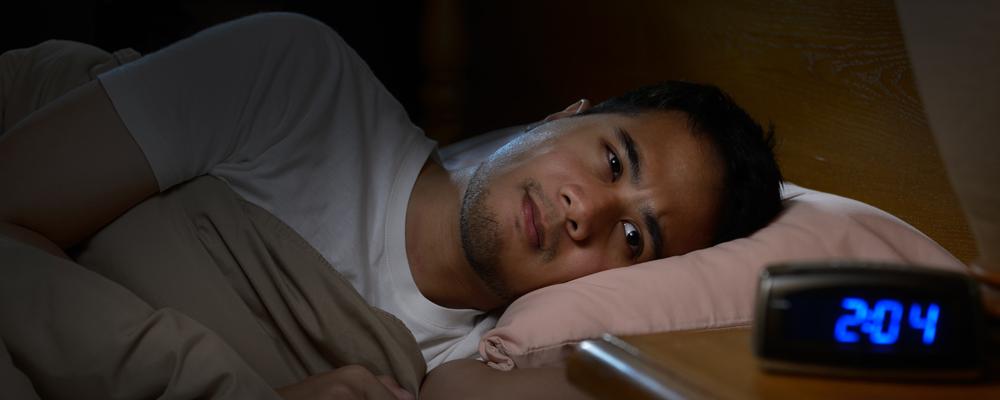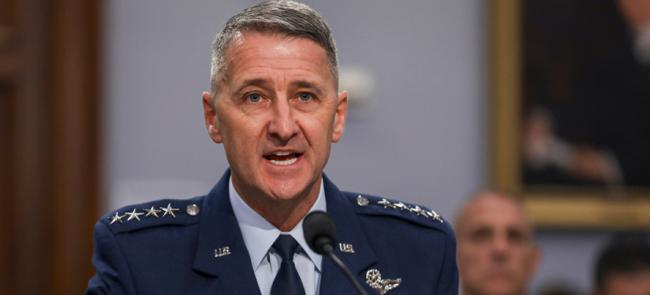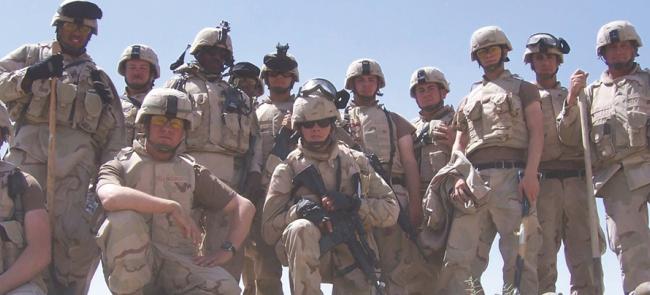
The Importance of Catching Z's
Retired Col. (Dr.) Vincent Mysliwiec still remembers the day, even though it occurred years ago. He was a cadet in the U.S. Military Academy at West Point, New York. The subject was history, and the room was filled with upperclassmen. Mysliwiec stood in the back to stay awake.
“I was averaging probably four hours a night of sleep,” he recalls.
That was common, especially for plebes, as freshmen are called at West Point. They often have to cope with sleep loss, Mysliwiec says. But the problem caught up with him that day in class. His eyelids drooped during the lecture and he fell to the floor.
“That was my worst semester academically — ever,” he adds.
That problem triggered an interest, though. Mysliwiec went on to become a military physician and sleep expert who retired after 24 years of service. He also authored 70 peer-reviewed articles and served as sleep consultant to the Army surgeon general before he assumed his current position as professor of research at University of Texas Health in San Antonio.
Mysliwiec’s work provides some of the fuel behind an Army push to educate soldiers on importance of sleep, which service leaders believe is critical to mission success. They include it in their Performance Triad along with activity and nutrition.
“In training and on the battlefield,” says the Army literature, “inadequate sleep impairs many mission-critical abilities such as reaction time, the ability to detect and engage the enemy, and squad tactic coordination.”
Yet the problem persists, in part because an enduring troop ethos that sometimes overvalues toughness.
“Despite mission-relevant performance degradation resulting from sleepiness,” the literature continues, “a culture of suboptimal sleep and a perception that lack of sleep is ‘the Army way’ prevails in the force.”
The problem transcends the components and the services. So has the research. An example is a Washington State University College of Nursing study of Air National Guardsmen found sleep-deprivation adversely affected performance.
Sleep is critical to cognitive performance on and off the battlefield.
—Lt. Col. (Dr.) Vincent Capaldi, the director for the Center for Military Psychiatry and Neuroscience at the Walter Reed Army Institute of Research in Silver Spring, Md.
The study monitored the sleep habits of 77 Air Guard medical professionals before and during a disaster training exercise. It was published in the February 2019 issue of Military Psychology, the official publication of the Society of Military Psychology.
“National Guard members who are sleep deprived are more likely to make mistakes, be at risk of accident and injury, and have long-term health problems,” said Dr. Lois James, the co-investigator for the study. “Sleep deprivation can take years [up to a decade] off the life span.”
Those long-term health effects include obesity, diabetes, hypertension, cardiovascular disease, some cancers and Alzheimer’s disease. Lack of sleep has even been associated with erectile
dysfunction.
Mysliwiec believes about half of service members have poor sleep habits, either wrestling with insomnia or waking up too soon. Either way, they often get less than six hours of sleep a night, he says, even less when they are deployed.
And so-called sleep debt can accumulate quickly. The impact shows up in your reactions, which will roughly be the equivalent of being mildly intoxicated, say many experts.
“The cognitive process that most people lose first would be the ability to maintain attention or vigilance,” Mysliwiec says. Sleep impacts the prefrontal cortex, he adds. That area controls higher-order thinking.
“Your ability to do ethical reasoning is no longer as sound,” Mysliwiec says about sleep deprivation, “especially in a leader where you have to make complex decisions.”
That’s why the Air Force normally mandates that aircrews get a 12-hour rest opportunity to include at least eight hours of uninterrupted sleep before a flying mission.
Some part-time Guard officers, especially those in command positions, could use eight hours of uninterrupted sleep before most training assemblies, if they had the time.
Many have demanding civilian jobs, which means weekend drills are typically in the middle of a 12-day grind, with final preparations done the last few nights before — often after their kids go to bed. Something has to give, and it’s usually sleep.
Mysliwiec has some practical suggestions to help you maximize sleep. Limit caffeine to less than 400 milligrams a day and avoid it after 1 or 2 p.m. The average cup of coffee has 95 milligrams.
Also, turn off electronics after sunset to limit the impact of light on melatonin, which is the hormone that regulates sleep rhythms. Organize for the periods of the day when you are the most alert. For most people, that first period of alertness is around 10 a.m. to noon.
Finally, plan around the problem. Expect the impact of sleep loss on judgment. Set up meetings when people can listen without drifting off.
A comprehensive study on sleep in the military published by the RAND Corporation in 2015 includes several added recommendations to help leaders. Among them are warnings about the use of energy drinks and sleep medications, which can promote sleep problems instead of preventing them.
Researchers also suggest banking sleep (getting extra rest before it’s needed) and using an eye mask or earplugs to limit distractions. Also nap whenever possible.
Lt. Col. (Dr.) Vincent Capaldi saw many sleep-deprived troops when deployed to Afghanistan and Iraq. He is director for the Center for Military Psychiatry and Neuroscience at the Walter Reed Army Institute of Research in Silver Spring, Maryland.
“The majority of people who came to see me were sleep-deprived,” he says. “That increases accidents and makes it harder to get along with others.”
Capaldi compared the problem to drunk driving. Go 24 hours without sleep and you face cognitive impairments that are similar to being intoxicated, he says.
“When you’re not sleeping — you’re less able to self-regulate,” he explains. In other words, you overestimate your ability to function.
Researchers at Walter Reed developed a technology called “actigraphy.” It monitors sleep habits on a soldier’s wrist by recording sleep behaviors and heart-rate patterns. Commercial versions are available in wearables, such as Fitbit and Apple watches.
“Having that data available to service members is helpful,” Capaldi says. “Wearables are absolutely the future.”
Information that precise could help any commander. Imagine the ability to see how each team member slept the night before? That would help evaluate unit capability and the need to recover.
“In the past, sleep has been considered a liability for service members,” Capaldi adds. “Today, we understand sleep is critical to cognitive performance on and off the battlefield.”
The author is a Sylvania, Georgia-based freelancer who specializes in military subjects.
Consequences of Sleep Deficiency
Common short term consequences of sleep deficiency include:
•Decreased physical and mental performance
•Impaired memory
•Impaired concentration
•Longer reaction time
•Poor decision-making
•Decreased testosterone production
•Diminished emotional control
Source: Army Public Health Center



